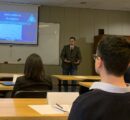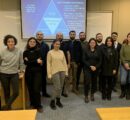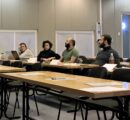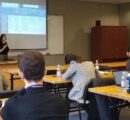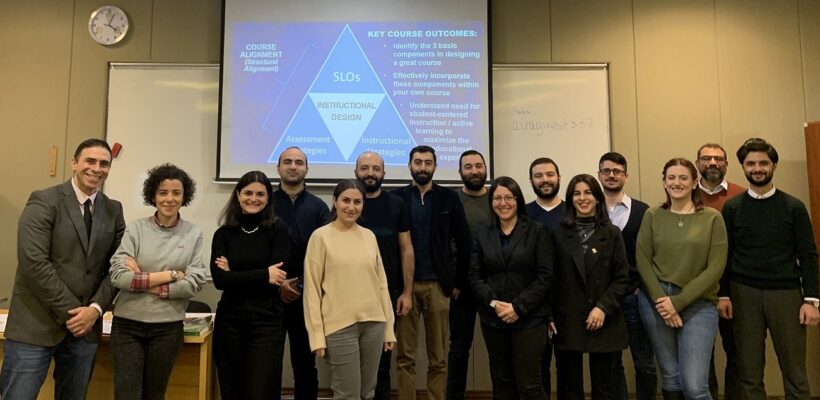
AUA Faculty Participate in Instructional Design Certification Workshop
3 min readYEREVAN, Armenia — Faculty members from various programs of the American University of Armenia (AUA) participated in a highly engaging certification workshop on instructional design. The three-day event, held on January 11-13, was led by Dr. Brent Anders, director of the Office of Institutional Research and Assessment (OIRA), Center for Teaching and Learning (CTL) at AUA, and OIRA/CTL Assessment Coordinator Suzan Sahakyan.
The purpose of this annual certification workshop was to provide faculty — particularly new faculty — intensive training to develop teaching skills and enhance student learning. This professional development workshop addressed various components of instructional design, such as learning objectives, Bloom’s Revised Taxonomy, constructive alignment, formative and summative assessments, and pedagogy. The presenters ensured that faculty were made aware of new advancements in artificial intelligence (AI), specifically ChatGPT, and methods for developing literacy in AI tools among faculty as well as students and ways of properly structuring assignments and instruction to incorporate AI, as appropriate. The workshop highlighted AUA’s Moodle learning management system as a useful resource featuring interactive online tools for engaging students. Participants who attended all three days of the workshop earned a certificate of completion of instructional design.
A major theme of the workshop was student-centered instruction. Faculty were encouraged to foster diversity by creating a safe, fair, and equitable learning environment to enhance participation by all students. Participants reviewed and practiced various active learning instructional strategies, including role-play, scenario, discussion, problem- and project-based learning, case study, debate, games, and jigsaw. Additionally, emphasis was placed on the importance of motivation and avoidance of excessively lengthy lectures to ensure productive learning and a positive educational experience for all.
Some of the comments shared by participants in their post-workshop evaluations included the following: “It was very interesting with great visuals and also very interactive,” “I really appreciated and liked the topic of ChatGPT in education, very useful,” and “I liked how everything was well organized and how we covered different types of instructional techniques! I learned a lot.”
Sahakyan also shared her thoughts on the workshop: “I was enthused to see AUA instructors this motivated to brush up their skills and get acquainted with modern methods and approaches in teaching and learning. I believe that by attending such workshops, instructors practice what they preach — that is, lifelong, continuous learning. There is nothing more rewarding than seeing an educator demonstrate a keen desire to become a better instructor.”
In turn, Dr. Anders expressed satisfaction with the workshop: “It was great to go through this course with AUA instructors. The room was filled with many new faces, but there were some instructors who were going through the course again, which was great. I’ve gone through it three times myself and learned something new each time. It was also a great opportunity to spread the word about the new ChatGPT AI, so that we can continue to develop AI literacy in order to be more effective when interacting with and instructing students in this new age of AI.”
CTL is committed to helping instructors in multiple ways and will organize at least one professional educational development event each month. The Center is also working on creating various teaching and learning resources such as videos, short guides, infographics, and research summaries to support instructors and develop a scholarly culture at AUA. For more information, please visit the CTL website at https://ctl.aua.am and follow the CTL Facebook page at www.facebook.com/CTLatAUA.
The Center for Teaching and Learning (CTL) of the American University of Armenia (AUA) supports faculty to inspire, cultivate, and continuously enhance the educational process and student experience through research-based, creative, pedagogy and instructional design.

